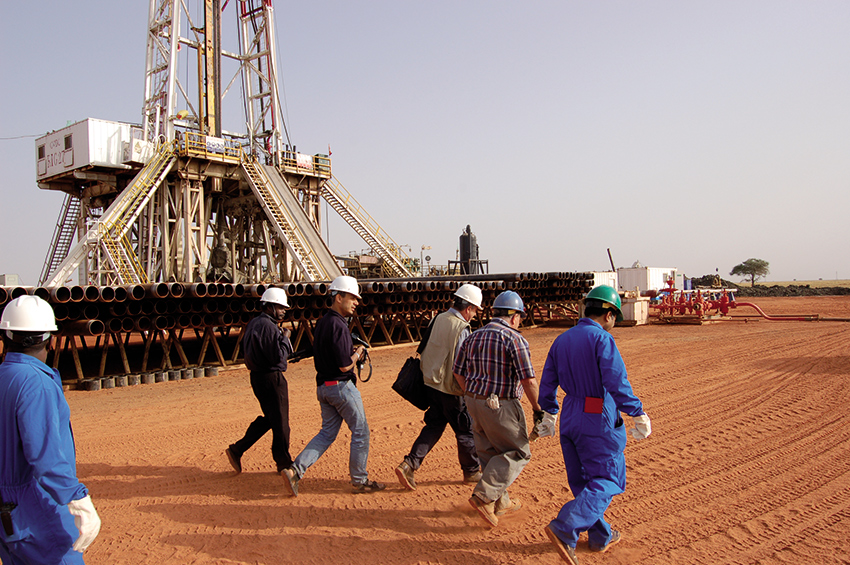With investments returning to Sudan’s oil industry, the country could soon become one of the largest oil exporters in Africa once again

When commercial quantities of oil first began to be exported by Sudan in 1999, throughout the following decade the Sudanese economy enjoyed a huge boom on the back of steadily increasing production, high oil prices, and large inflows of foreign direct investment, culminating in a GDP growth of over 11 per cent by 2007.
Many at the time predicted that Sudan would become a major international player, as well as one of the most important producers in Africa. However, when the country voluntarily sacrificed 75 per cent of its oil to the newly formed state of South Sudan in 2011, its hydrocarbon potential was left dented.
The government, nevertheless, has by no means given up on keeping the country in the mix of the continent’s key energy contesters, especially after Sudan and South Sudan agreed in October 2013 to resume the flow of oil through Sudanese pipelines for refining and export.
“The State of South Sudan is in need of development, pointing out the necessity of cooperation between the two countries. In addition, the oil flows from South Sudan through Sudan to the international market, and there are many usufruct contracts in a number of different locations.
We work with companies that have experience, knowledge and financial ability”, says the Sudanese Oil Minister.
Owing to increased cooperation as well as development in Sudan’s new and existing oil fields, Sudan’s economic growth is now predicted to increase 3.9% by 2017 as oil investment and domestic oil production rises.
The Ministry of Petroleum revealed in December 2013 that the country was producing around 130,000 barrels per day (b/d) and is now planning to increase that to 260,000 b/d in the coming years.
The Government has recently been offering its untapped resources to investors, and considering the relatively raw nature of these unexplored blocks, it is a strategy that could lead the way to yet another oil boom in the medium to long term future.
Having auctioned off several exploration blocks in the course of an active Government campaign to promote the advantages of the Sudanese energy market, production has already started in three of these areas, combing investments from Sudanese and foreign companies.
As the country’s exploration auctions attract a whole host of international suitors looking to take advantage of the lucrative possibilities that lay beneath its lands, the Government sees exploration as a catalyst for generating foreign currency reserves; fueling greater socio-economic progress, developing human capital and expertise, and transforming foreign direct investment into long-term growth potential for homegrown enterprise.
And with oil looking to continue expanding as Sudan’s key driver of growth, aside from petroleum, it is also hoped that great natural gas discoveries will be made in the near future, with one Sudanese company currently working to utilize the dry gas that it found in 2009 in order to provide greater energy security for the nation.
0 COMMENTS